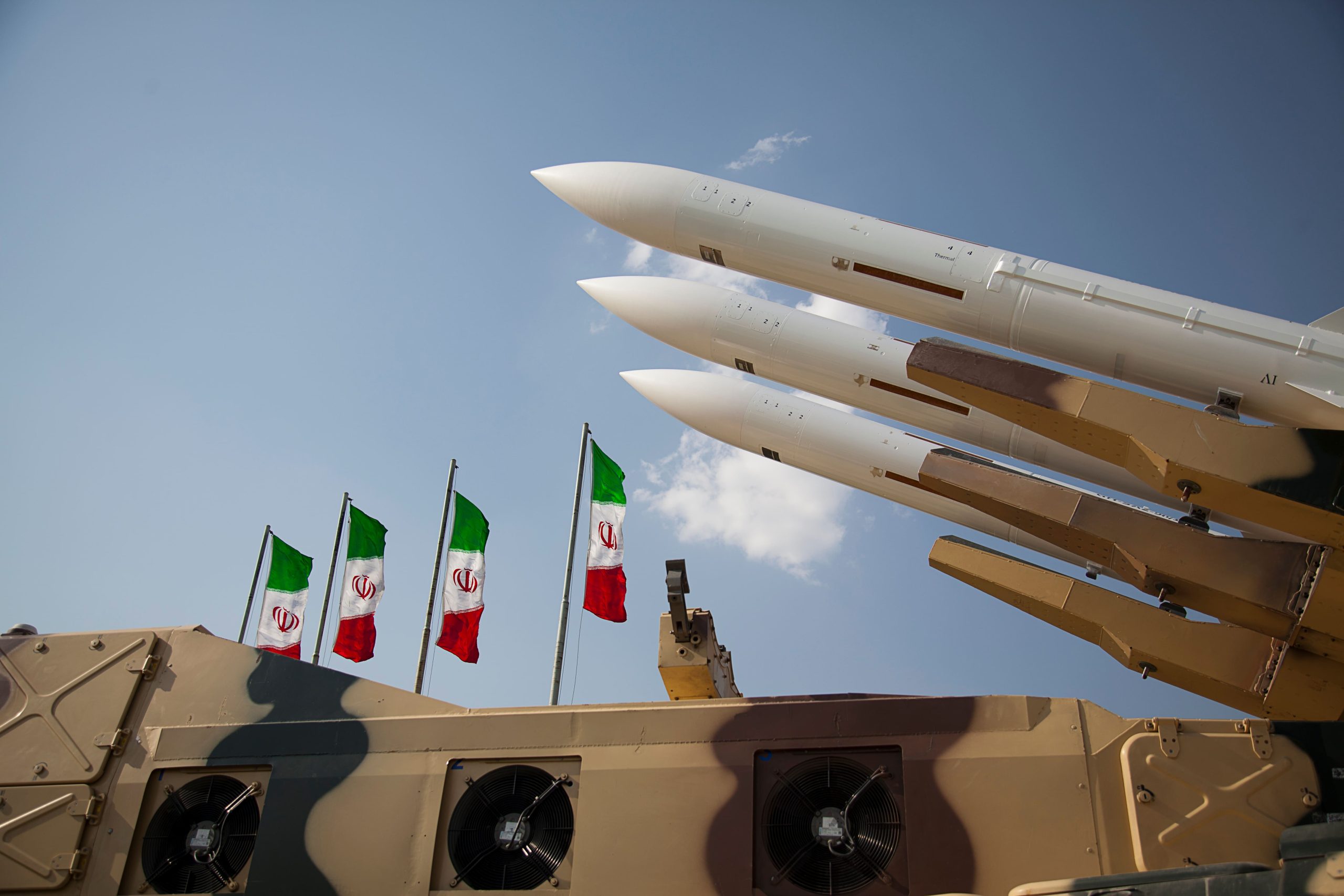Although Iran frequently holds military maneuvers, in various parts of the country and at different times of the year, the “Zulfiqar 1400” maneuvers which launched on the 7th of November, have attracted particular attention. These maneuvers started shortly before the new round of negotiations on Iran’s nuclear capabilities, scheduled to start on the 29th of November. The timing was also notable for coming soon on the heels of Iran’s allegations it seized an oil shipment the US had confiscated in the Persian Gulf. On its part, the US vehemently denied these allegations, asserting that Iran had been holding a Vietnamese tanker since the 24th of October.
The choice of location was also noteworthy. They took place in the south-east of Iran, in an area not only close to the world oil shipping lanes in the Arabian Gulf and the Straits of Hormuz, but also that is quite near to Afghanistan. This is indicative that Iran is having concerns regarding Taliban policies, although it maintains channels of communications with them. Iran is concerned regarding Taliban close coordination with Pakistan, which it does not view as consistent with its own interets. Moreover, it was significant that the maneuver was conducted by the armed forces, not the IRGC, indicating not only that this area is under the armed forces control, but also that there is a high level of coordination between the two entities. This is consistent with Iranian efforts to refute recent reports that there are differences, under the surface, between the armed forces and the IRGC.
It is therefore possible to argue that the location of the maneuvers, and the fact that they were entrusted to Iran’s armed forces, indicate the following:
The Military Option is still on the table: Although negotiations regarding the nuclear agreement will resume on the 29th of November, after a hiatus of nearly 5 months, this still does not strengthen the odds that a deal will be reached. While setting a new date for negotiations suggests that Iran and the US are interested in reaching an agreement, the growing list of differences, more than existed in previous rounds of negotiations, cannot be ignored. Iran has escalated its demands in view of the advances it has achieved with respect to its nuclear program, especially increasing the amount of uranium enriched at 60%, to 25 kilograms, and the amount of uranium enriched at 20% to 210kg.
Therefore, Iran is no longer discounting the possibility that negotiations could fail, and therefore the situation would return to square one, where other options that were held off while negotiations were explored are once more on the table, especially the military option.
It is also noteworthy that Iran has lately been pointing out that the US ruling out a military strike is not a strategic position, but a tactical one, to allow an opportunity for settling the issue through negotiations and diplomacy. For example, the head of the Iranian nuclear agency Mohamed Islami declared on the 7th of November, “when it comes to threats, no one has talked about the military option during the past two years” adding “this raises the question as to whether this option was ruled out due to tactical reasons by the enemy”. This indicates that Iran no longer rules out direct confrontation with the US or Israel if negotiations fail.
Iran will continue to avoid US Sanctions: It appears that Iran still insists on dodging US sanctions, and these latest maneuvers are an indication it will not allow these efforts to be disrupted, even though its allegations of retaken an oil shipment seized by the US is questionable at best. The assistant to the Iranian president for economic affairs, Mohsen Redayee, clearly indicated that Iran will continue to smuggle oil, stating on the 4th of November “pressures on Iran have forced it to smuggle Oil and to secretly bring US dollars into the country”.
Iran is obviously seeking to exert more pressure on the US in the lead up to the next round of negotiations, and to show it has options when it comes to dealing with US pressure. Iran seeks to demonstrate that its expertise in dealing with US sanctions will enable to lessen their impact, particularly on the Iranian economy.
Cooperation between the Army and the IRGC will be enhanced: Allowing the armed forces to conduct these maneuvers indicated there is a general orientation towards raising the level of coordination between the armed forces and the IRGC. This follows indications lately that there is resentment in the armed forces regarding the growing influence and roles played by the IRGC. Although this resentment may have existed for some time, it began to come into the open with the death of Qassem Suliemani, the head of the IRGC assassinated in a US strike on the 3rd of January 2020. In an interview with the ARANA news agency on the 31st of May 2021, the assistant head of the armed forces for coordination affairs Habib Allah Siyari _who was also the one to announce the details of the latest maneuvers_ stated, “the army does not like interference in political or economic matters and avoids working in parallel to the state”. This was a clear reference to the tools the IRGC uses in establishing its presence and its interference in the decision-making process in Iran.
Although the comments were quickly deleted by the ARANA news agency, this did not decrease the heated debate within Iran regarding the overlapping roles of the army and the IRGC. Thus the recent maneuvers suggest increased cooperation between the two entities, in view of the fact that Iran may be entering one of its most difficult phases, in which it cannot rule out confronting a military attack from Israel or the US.
Possible return of tensions with the Taliban: Iran was careful to demonstrate to the Taliban that it did not object to their rise to power in Afghanistan, and would not seek to undermine them, but in fact revealed its lines of communication, hoping this will eventually serve its interests. However, Iran did not welcome the policies the Taliban adopted after seizing power, especially with respect to the exclusion of other ethnic and sectarian components in Afghan society, especially the Tajik and the Hazara. Therefore, there are those in Iran that do not rule out the return of tensions with the Taliban, and that the latter may once more target Iranian interests. Iran has also begun to direct veiled criticisms towards Pakistan, accusing it of supporting the Taliban and its exclusion of all other groups.
Iran will escalate tensions in the Region: The warning signals Iran has sent with the holding of the latest maneuvers cannot be separated from other Iranian actions in the region. Although Iran swiftly condemned the assassination attempt on the Iraqi prime minister Mostafa El Kazmy, this has done little to lessen accusations Iran was responsible for it, or at the very least, that it allowed militias loyal to it to go this far in retaliation for the results of the October elections. Iran is also increasingly concerned with regional and international overtures towards Syria, which Iran considers to be aimed primarily at reducing its influence there. Iran has therefore sought to reinforce its footprint there, through a buying spree of real estate and agricultural lands, that has provoked even its own allies.
In conclusion, it must be noted that these latest military maneuvers may not be the end of Iran’s provocative actions, but it may resort to further actions in order to reinforce its message to the major powers involved in the region’s conflicts, which is that it has no intention of making significant changes to its foreign policy, even if negotiations in Vienna succeed.


